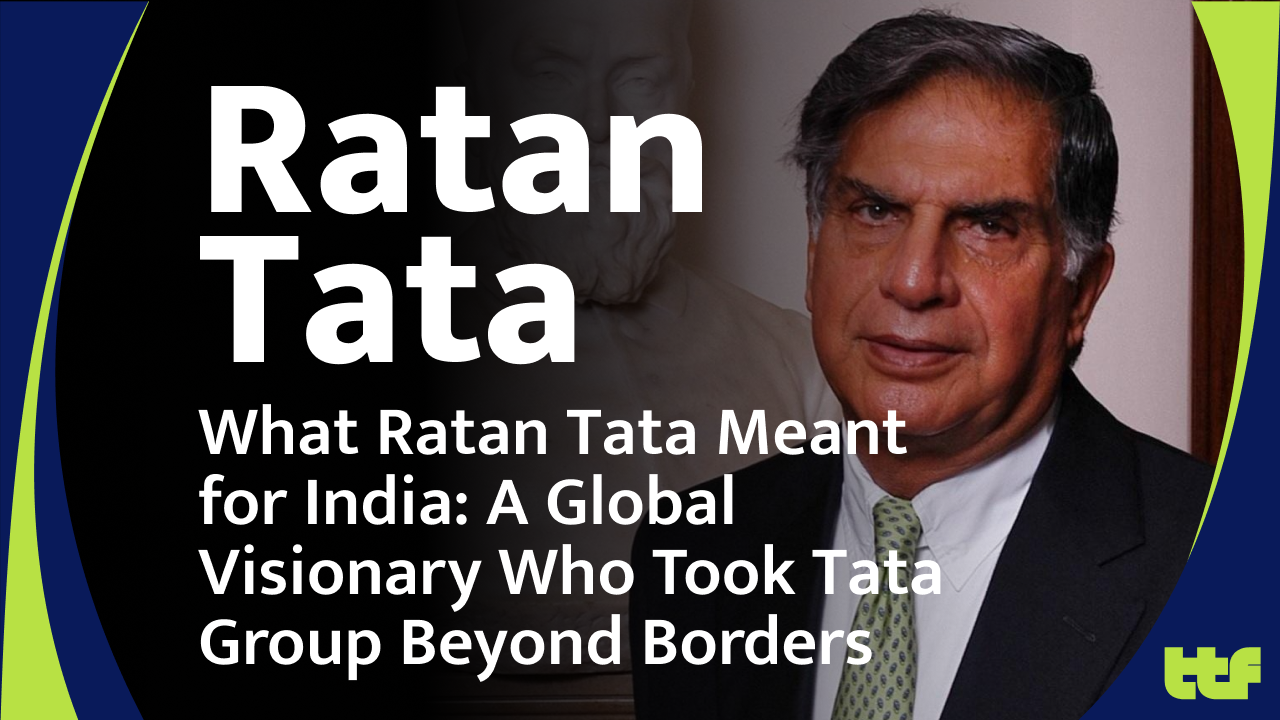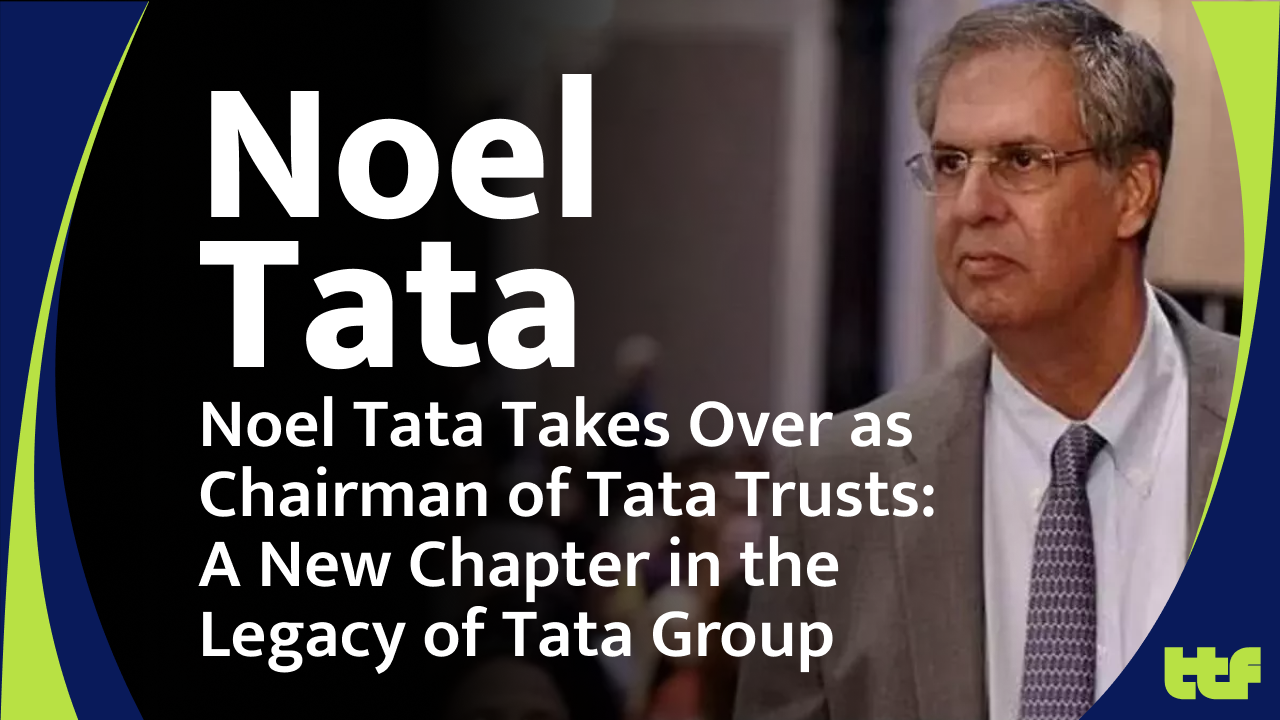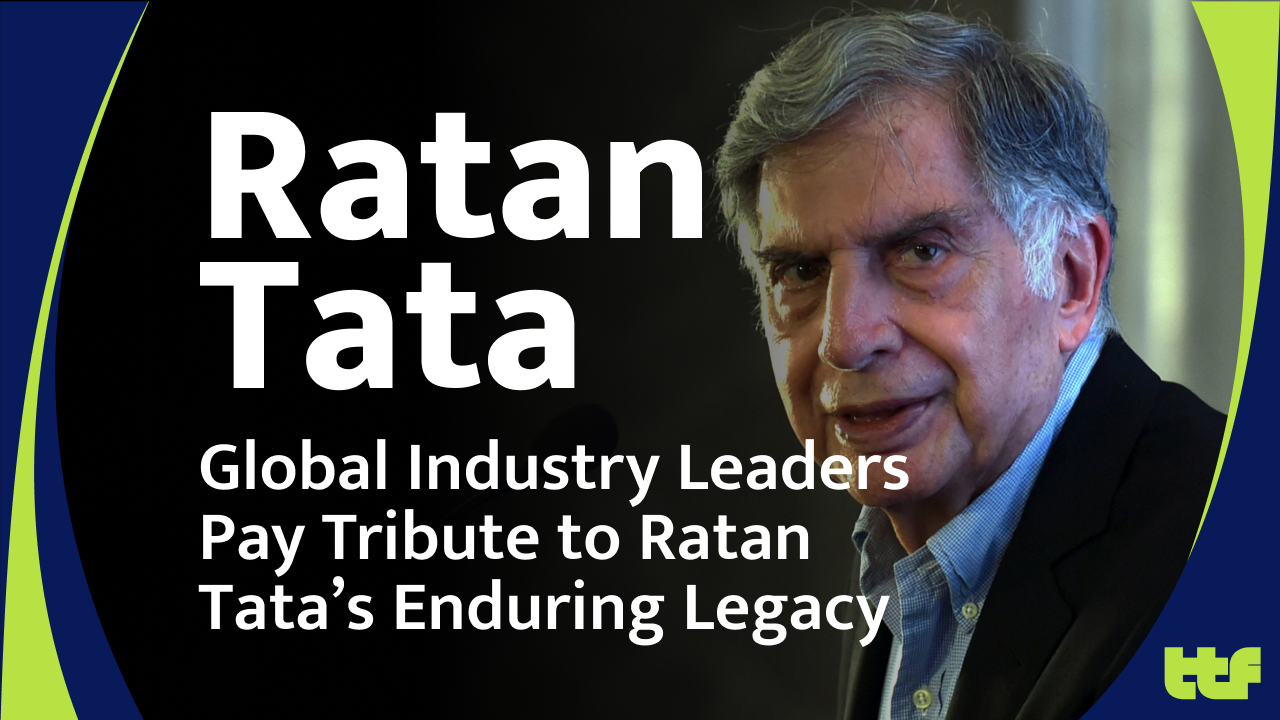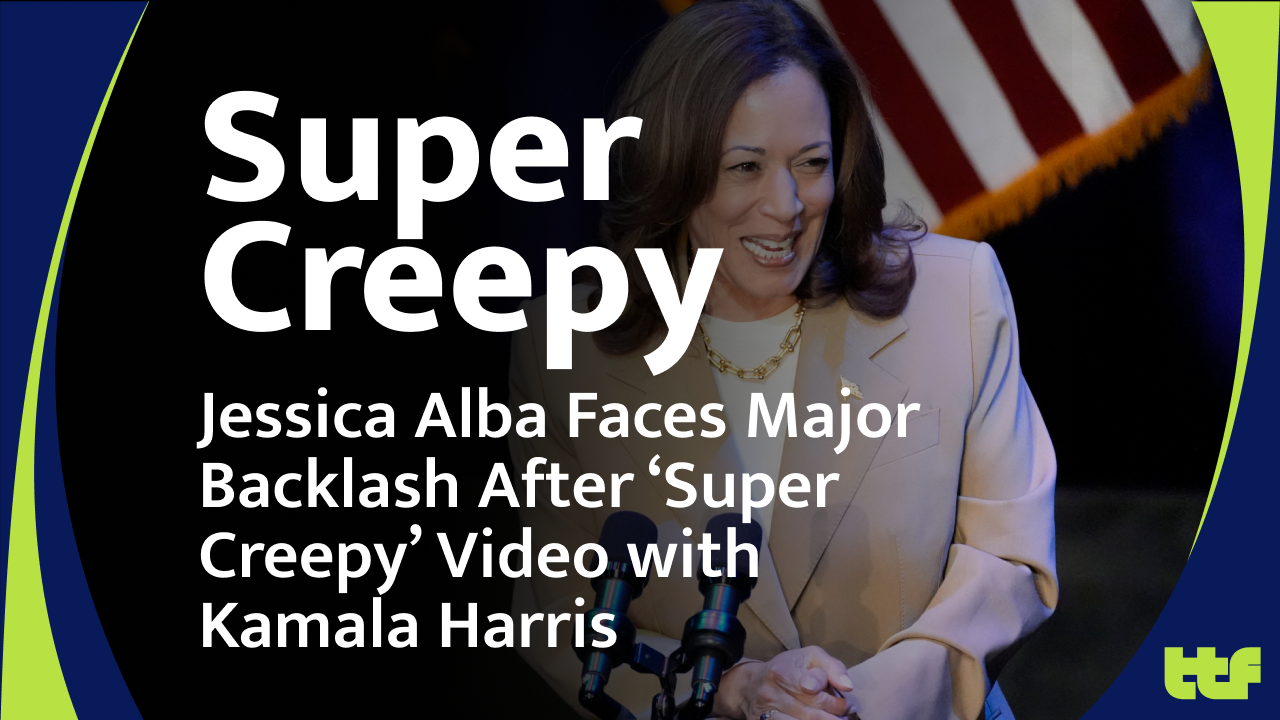As an eminent Indian business leader Ratan Tata stands respected for his exceptional administrative leadership together with his progressive outlook and his dedicated work in philanthropy. Ratan Tata entered the world on December 28, 1937 as a member of India’s distinguished Tata industrial dynasty and has established a permanent legacy across both Indian and international business domains. As former chairman of Tata Sons he led the Tata Group which operates as India’s largest and most respected conglomerate. Under his leadership Tata Group achieved worldwide market expansion while revolutionizing industries and launching innovative investment projects.
Early Life and Education
Ratan Tata emerged from a Mumbai family where his parents were Naval Tata and Soonoo Tata. Ratan Tata spent his childhood years under the care of his grandmother Lady Navajbai Tata after his parents divorced when he turned 10 years old. Ratan tata finished his education at the Campion School and Cathedral and John Connon School located in Mumbai. He received his degree in architecture from Cornell University in 1962 before attending Harvard Business School’s Advanced Management Program in 1975.
Joining Tata Group
Ratan Tata started his Tata Group career by working directly on the production floor at Tata Steel’s Jamshedpur facility during 1962. His initial role as a factory worker demonstrated his future leadership style which combined business acumen with a down-to-earth approach. His career progression led him to become chairman of Tata Sons in 1991 after J.R.D. Tata stepped down.
Transformation of Tata Group
India was moving forward with its economic reforms as Ratan Tata became the leader of Tata Group while the company focused primarily on domestic markets with traditional business methods. Tata Group achieved global power status when Ratan Tata led operations by implementing strategic acquisitions and bolting worldwide expansion schemes and improving operational methods. He guided the organization toward multiple international transactions which established important firsts in India’s business history.
Tata Tea’s acquisition of Tetley in 2000 for $432 million, which marked Tata Group’s first major international move. Tata Steel’s acquisition of Corus in 2007 for $13 billion, one of the largest overseas acquisitions by an Indian company. Tata Motors purchased Jaguar Land Rover (JLR) from Ford for $2.3 billion in 2008 thus creating global headlines and establishing Tata Motors as a player in luxury automobile markets worldwide.
Tata Group achieved international conglomerate status because of strategic acquisitions that expanded operations to more than 100 countries worldwide.
Notable Achievements and Contributions
Through his leadership of Tata Group Ratan Tata developed the organization into a corporation valued at $103 billion by 2016 while expanding its operations across steel manufacturing and automobile production and IT services and consumer products and hospitality and telecommunications.
Key milestones include:
- Automobile Innovation
As India’s initial native automotive product Tata Indica became available to the public during 1998. The Tata Nano (2008) emerged as a pioneering car destined to serve as the world’s most budget-friendly automobile for Indian citizens seeking accessibility to transportation across the nation. - Tata Consultancy Services (TCS)
During his time as leader TCS transformed into a worldwide IT leader by extending its operations globally before its initial public offering in(2004). TCS currently leads the world as one of its largest IT services organizations. - Tata Power and Tata Steel
Ratan Tata led the evolution of Tata Steel into a multinational company while implementing operational modernization at Tata Power to advance India’s industrial development.
Philanthropy: Tata’s Commitment to Society
Ratan Tata demonstrates an outstanding dedication to philanthropic work as one of his most noteworthy characteristics. Tata Group operates under the business philosophy that companies need to generate positive societal impact because Ratan Tata leads an organization which directs 66% of its profits toward philanthropic trusts.
- As the head of Tata Trusts Ratan Tata directs this earliest Indian philanthropic organization. Ratan Tata leads the Trusts organization which operates in education, healthcare, rural development and social entrepreneurship fields.
- The healthcare programs supported by Tata Group have become major components of Indian medical care. The Tata Memorial Hospital stands as a cancer treatment and research anchor in Asia because of its distinguished leadership position.
- Through his philanthropy Tata has backed educational institutions such as the Indian Institute of Science (IISc) together with the Tata Institute of Social Sciences (TISS).
- The Tata Trusts along with Tata Group dedicated ₹1,500 crore specifically to deal with the COVID-19 pandemic through providing healthcare facilities and testing services for disease management.
Personal Life
The business world recognizes Ratan Tata for maintaining his humble personality even though he is a prominent figure in the industry. The businessman remains unmarried as he previously reached a point where he could have married someone except for unforeseen factors. When not working he spends his time with dogs. This hobby often leads him to interact with his pet dogs. The world respects and admires him because of his humble lifestyle and simplicity as a person.
The Start-Up Ecosystem: Ratan Tata’s Role as a Mentor and Investor
Through his mentorship and investment activities Ratan Tata led the development of the start-up ecosystem. Ratan Tata expanded his business impact through his commitment to guide India’s fast-evolving start-up market. Through his mentoring activities Ratan Tata supports multiple startups by directing them towards receiving essential credibility and funding and access to crucial resources allowing them to develop their operations. His entrepreneurial activities substantially developed the Indian startup sector.
The following list includes startups Ratan Tata supported together with his investment partnerships:
1. Ola Cabs
Ratan Tata began his investment in Ola during 2015 to enter the booming ride-hailing industry. Through his relationship with Ola the brand gained recognition which led the company to open new market opportunities.
2. Paytm
Ratan Tata’s investment into Paytm at the beginning of 2015 proved essential for the company because it transformed from mobile recharge services into India’s top digital payments and financial solutions platform.
3. Lenskart
Lenskart gained investment funding from Ratan Tata in the year 2016 when it became a popular eyewear brand. His financial support improved the company image leading to expanded operations and higher market performance in the challenging Indian e-commerce arena.
4. Urban Company
In 2015 Tata invested finances into Urban Company (known as UrbanClap at that time) as part of its mission to help the home services platform expand through this funding. By investing Tata enabled the company to provide both professional beauty services and home domestic services.
5. Zivame
Through his 2015 investment in Zivame Ratan Tata enabled the online lingerie retailer to broaden its digital footprint which better served customers from more consumer segments and improve their shopping experience.
6. FirstCry
Tata invested capital into FirstCry through a 2016 funding round with this company serving the online marketplace for infant-related products. Through his investment Ratan Tata brought Firstcry to become a dominant entity in India’s childcare e-commerce market.
7. CarDekho
The 2015 investment by Tata into CarDekho enabled the platform to increase market position in automotive services while building its status as a premiere website for vehicle purchasers.
8. Snapdeal
In 2014 Ratan Tata put his money into Snapdeal which turned out to be one of the biggest e-commerce platforms in India. The company received heightened market presence and gained new investors through his investment which also improved its public image.
9. CashKaro
Ratan Tata chose to invest his money in CashKaro for the website which operated as a cashback platform and coupon provider in 2016. Because of his support, the platform expanded its operations and the cashback industry gained authority in India.
10. Lybrate
Through his investment in 2015 Tata provided funding to Lybrate which enables patients to find doctors for online medical consultations. Through his backing the company succeeded in expanding its presence and increasing healthcare availability in India.
11. CureFit
During (2016) Tata invested funds into CureFit to enhance its efforts in developing revolutionary fitness healthcare solutions through its modern app-based framework.
12. Urban Ladder
Ratan Tata invested his money into Urban Ladder which operates as an online furniture retailer during (2014). The platform received substantial brand strength and achieved bigger customer enrollment because of his investment.
13. Bluestone
In (2014) Ratan Tata used his investment to support Bluestone as an online jewelry retailer which in turn granted the brand credibility to expand across India’s developing e-commerce market.
14. Dogspot
Dogspot achieved leadership in providing pet products and services across India through an investment which Ratan Tata made into the online pet care platform.
15. Upstox
Ratan Tata made his investment in Upstox in 2016 by purchasing 1.33% of the shares in the discount brokerage platform. The investment for Upstox turned out to be exceptionally profitable as it now holds a value of billions.
16. GOQii
The billionaire made his investment into GOQii during 2015 as the health-tech startup engaged in producing fitness wearable devices and wellness service operations. The Indian fitness market gained significant prestige thanks to his investment.
17. Abra
Tata invested in Abra (2017) as the company operates globally as a cryptocurrency wallet and exchange service. He displayed a progressive attitude by investing in new ventures that belonged to the developing financial technology sector. Through his belief in the entrepreneurial spirit Ratan Tata motivated numerous young business leaders to embrace risks and implementation of new ideas. His support continuously extends to ventures that promise advantages both for India and the global domain.
Awards and Recognition
Global communities recognize the valuable achievements of Ratan Tata. The following awards stand out among those received by Ratan Tata: Padma Bhushan (2000) and Padma Vibhushan (2008), two of India’s highest civilian honors. Honorary Knight Commander of the Order of the British Empire (KBE) in 2009, in recognition of Tata Group’s significant investments and contribution to the UK economy.
Multiple distinguished worldwide institutions have honored Ratan Tata with honorary academic titles.
Post-Retirement and Legacy
Ratan Tata exited his position as Tata Sons chairman in 2012 by selecting Cyrus Mistry to take the leadership role. The year 2016 brought his brief return to lead Tata Sons following the public boardroom battle that removed Cyrus Mistry from power. He gave up the chairman position to Natarajan Chandrasekaran who now leads TATA Sons.
After quitting his position as chairman of Tata Sons Tata maintains his influential role in the business world. After leaving his position as Tata Sons chairman he keeps managing Tata Trusts actively and backs start-up endeavors and mentors new business leaders. His ethical business examples combined with community dedication and worldwide perspective have set an inspirational model for modern business leaders worldwide. Through his life story Ratan Tata displayed exceptional leadership skills while dedicating himself to serve society.
Through his leadership at Tata Group he positioned Indian businesses for global success and revealed Indian industries have the power to compete at international levels. He demonstrates his belief in using wealth by dedicating himself to philanthropy and national development. Through his life example he represents both personal integrity and business excellence and humble disposition which continuing to inspire future generations.
What were Ratan Tata’s most notable global acquisitions?
The global acquisitions of Ratan Tata included British tea firm Tetley and Corus Steel during 2000 and 2007 respectively before Jaguar and Land Rover joined in 2008. The business agreements propelled Tata Group into becoming a prominent global entity.
How did Ratan Tata contribute to the Indian automobile industry?
As the founder of Ratan Tata he brought revolutionary change to the domestic automobile market through the launch of the Tata Indica which he designed himself and the Tata Nano he made affordable for the world. Through these initiatives Tata Motors achieved top position in both the Indian and international automobile markets.
What philanthropic initiatives has Ratan Tata supported?
Through his Tata Trusts program Ratan Tata established Tata Memorial Hospital while providing financial support to both Indian Institute of Science and Tata Institute of Social Sciences.
How has Ratan Tata contributed to India’s startup ecosystem?
Through his investment in Ola Paytm Lenskart and Urban Company Ratan Tata actively contributed to developing innovation and entrepreneurship across India.



